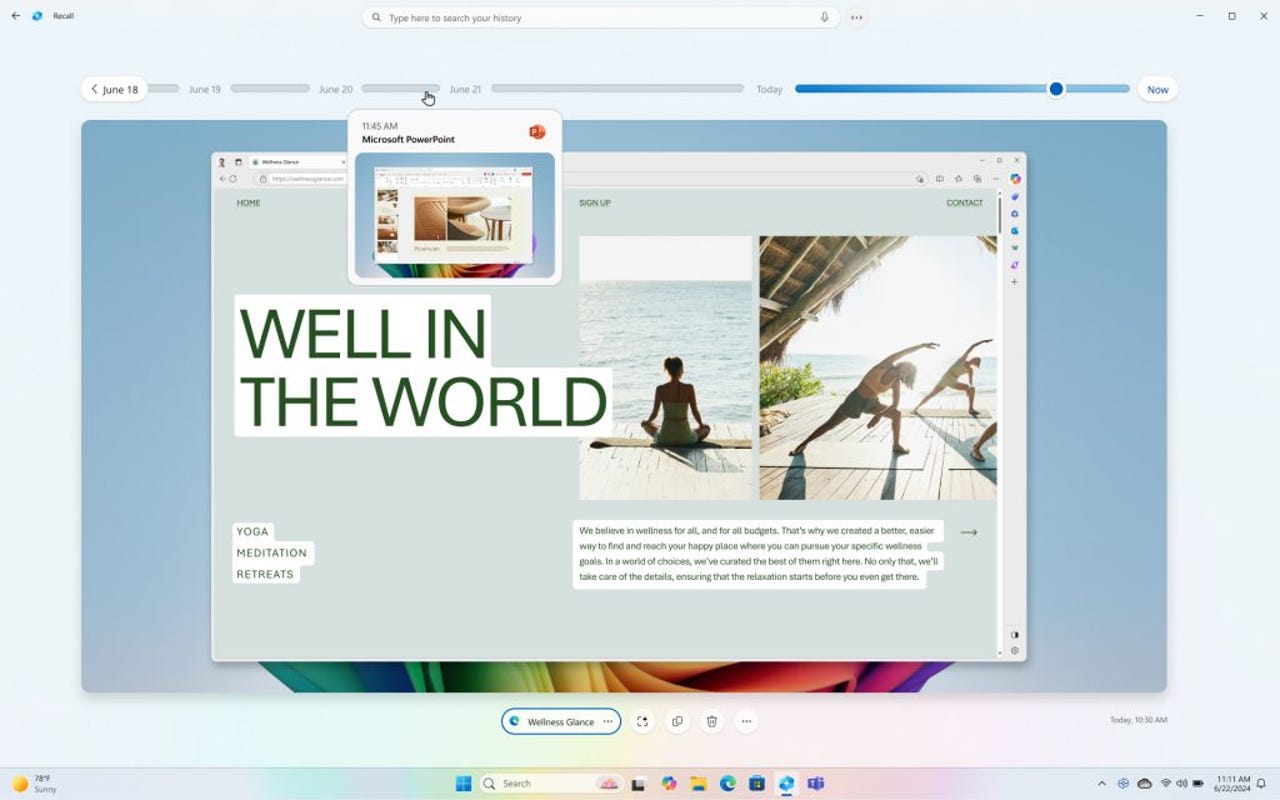Windows' Recall lets you ask AI for that file you can never find - but only on these PCs


Microsoft is all in on the AI PC arms race. During its Build event, the company made some exciting announcements, such as the launch of a Copilot+ PC lineup and artificial intelligence updates coming to Copilot. The company also announced Recall AI, a feature Microsoft describes as photographic memory for your PC.
Also: Is Apple sweating yet? Every Windows laptop launching with Qualcomm's Snapdragon X Elite
The Recall AI feature allows users to ask about a file, website, or email using their voice. For example, you could ask it to find that email from your boss with the conference schedule you got last week or to pull up a note about something you wrote down -- without needing to use the PC's search option.
Recall records the user's screen and indexes the information to make it searchable with AI. Instead of searching for the exact name on a file, you can describe what you remember about it, like 'the PDF that discussed employee onboarding' in natural language as if you were talking to a coworker. It also makes it easier to find a document's latest version quickly.
The feature captures what you do on your PC, but Microsoft ensures that the data stays local on the device, so you don't have to worry about your information going to cloud servers. The company also says it won't use any of the captured information to train AI models. Users can also view, edit, and delete anything captured and scroll through the timeline to find what they need.
Also: I went hands-on with Lenovo's new Snapdragon X Elite laptops, and they're scary thin
Recall AI will only be available on Copilot+ PCs at this time, as it requires some hefty hardware to run on-device. It is only available on PCs with an ARM64 processor, Snapdragon X Elite and X Plus, 225GB of storage or more, and 16GB of storage or more.